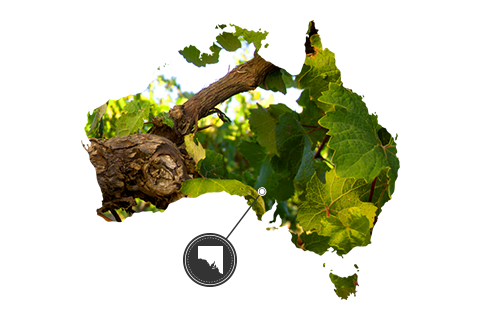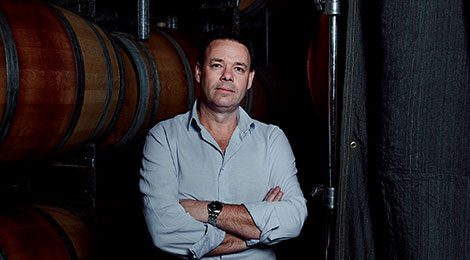Black Label Cabernet Shiraz Malbec 2019
Wolf Blass
Black Label Cabernet Shiraz Malbec 2019
Wolf Blass
Black Label Cabernet Shiraz Malbec 2019
- Exclusive pricing and offers
- Shipping included
- Plus more
Overview
Overview
Since 1973, the chase to make the perfect wine has been fundamental to creating 44 remarkable vintages of Black Label. Built on complex, multilayered flavour and magnificent structure, Black Label is a powerful expression of the Wolf Blass philosophy of synergistic blending.
The philosophy behind Black Label is simple: to take the year’s very best wines and weave them together into a synergistic whole, the resultant wine being greater than the sum of its parts. It’s about creating a wine with many layers of flavour in a complex composition of intense fruit characters, magnificent structure, a rich lustrous texture, long velvety tannins and a lingering palate.
Harvested at optimum maturity and flavour, fruit from each vineyard was crushed, destemmed and fermented separately for seven to twelve days on skins. The ferments were allowed to warm naturally, with plunging and gentle pumping over used to maximise colour and flavour extraction. Mid-ferment cooling extended fermentation, exploiting time on skins and accentuating line and length. Some batches stayed on skins to dryness, while others completed fermentation in barrel, allowing a balanced integration of oak characters and enhancing texture and complexity.
| Varietal | Cabernet Blend |
|---|---|
| Vintage | 2019 |
| Country | Australia |
| Region | Multi Region |
| Volume | 750 mL |
| Closure | Screw Cap |
| Alc/Vol | 14.5% |
| Peak Drinking | Now - 2042 |
| Winemaker | Steven Frost |
Awards and Accolades
Awards and Accolades
| 97 Points | Tyson Stelzer, Wine Magazine 2023 |
| 96 Points | Stuart Knox, The Real Review 2023 |
| 95 Points | Campbell Mattinson, Halliday |
| 95 Points | Robert Parker, The Wine Advocate |
| 93 Points | Mike Bennie, The Wine Front |
Food Pairing
Food Pairing
Beef
Lamb
Duck
Veg
Pizza
Taste Description
Taste Description
Nose
A rich, distinctive nose defined by layers of blackberry, blackcurrant and dark plum is backed up with deep notes of espresso coffee, panforte and hints of tobacco. Smoky, toasted-nut characters, derived from barrel fermentation and maturation, add attractive complexity.
Flavours and Palate
The palate is complex, mouth-filling and beautifully balanced, with refined yet generous dark berry fruit, and savoury secondary flavours of spice, coffee and cedary oak. Rich and elegant, with a velvety texture and supple, chocolatey tannins that impart a definitive structural line and exceptional length of flavour. The
vintage is typical of the characteristic Black Label style that overrides regional and varietal influences.
Viticulture Vintage & Winemaking
Viticulture Vintage & Winemaking

South Australia
Home to the oldest vines in the country, and no less than 18 wine growing regions, South Australia accounts for almost 50% of Australia’s wine production. The Barossa Valley, McLaren Vale, Langhorne Creek and Coonawarra are well known for their world class reds, with Adelaide Hills, Clare Valley and Eden Valley praised for their exceptional Chardonnay and Riesling.
Vintage Conditions
Winter and early spring rains were well below average. Late-spring frosts, wind and hail during budburst and flowering impacted yields. Summer was warm and dry, but cool evening breezes in most regions helped temper the heat of the day. Early ripening allowed fruit to be picked with good natural acidity, and low yields resulted in fruit with intense colour and flavour and good tannin structures.

Steven Frost - Winemaker
Steve grew up in his family's restaurant business in the Yarra Valley where, at an early age, his interest in food and wine was cultivated.
Though it wasn't his first career, growing and making wine was always Steve's passion, with most weekends spent working part-time in vineyards and making wines with friends.
Steve started working in the wine industry full-time in 1999, the same year he started a Bachelor of Applied Science (Wine Science) at Charles Sturt University. Drawn to work in the Barossa in 2005, he's been making Wolf Blass reds since 2008. The winery's expansive vineyard resources, modern and traditional winemaking techniques, and careful approach to blending proved just as irresistible then as they do now.
